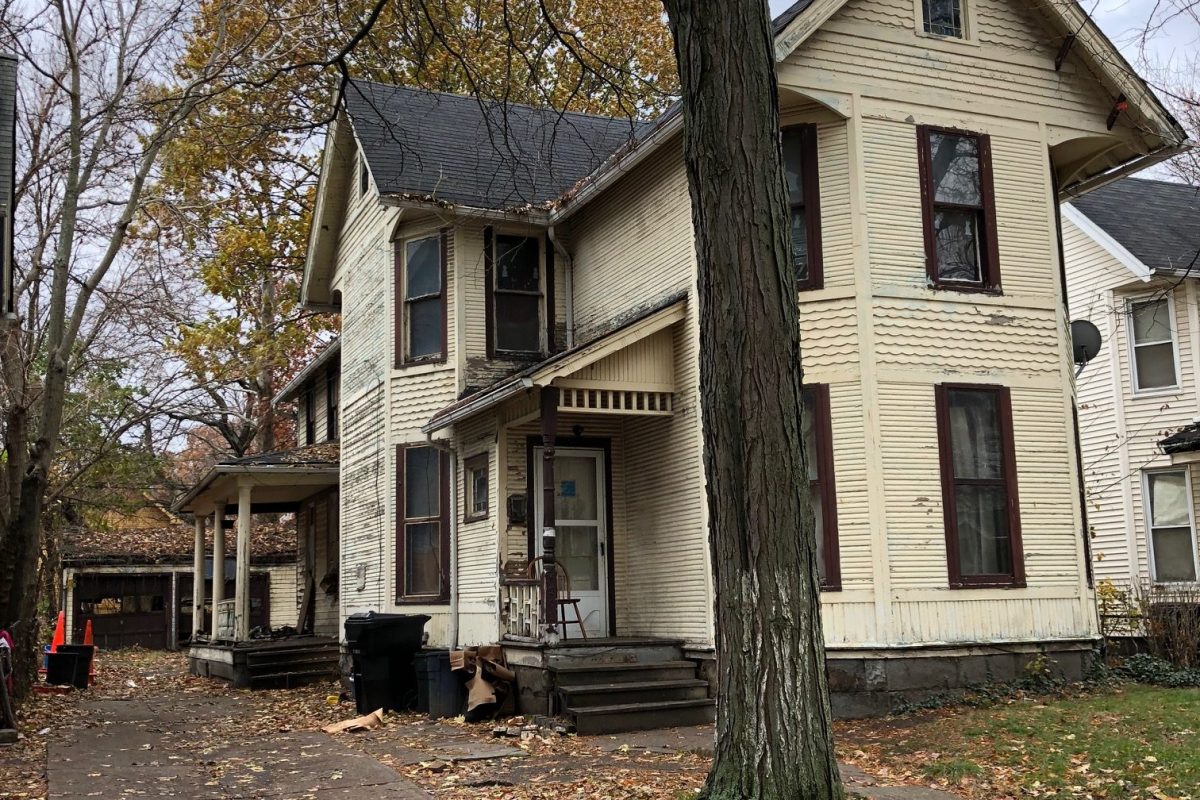During the two big traditional family holidays in the United States from late November through late December, we celebrate with the family and friends who can gather around us. Year to year, we notice changes and learn how our living our lives relates to them living theirs, all the while revealing different aspects of who we are when we are not busy playing the roles we play out in society and in our jobs.
When I was growing up, our family of four lived upstairs from my grandmother and grandfather, while my favorite aunt and uncle and two cousins lived in the front unit of a modest three-family house in the Lithuanian working-class district on the east side of Cleveland. Later, when we scattered to distant suburbs, the families of the three Palaima boys (my dad and his two surviving brothers) and close friends met every Sunday afternoon for dinner at grandma’s house. That was commonplace in the ethnic melting pot of Cleveland.
I visited it, now ramshackle and decaying, just before Thanksgiving. I felt the same nostalgic pangs of loss I feel when I watch the classic holiday movie A Christmas Story, featuring a family of four living in a house like my grandparents’ that still stands on the near west side of Cleveland. It has become a museum and shrine to that film’s version of warm family togetherness. Nobody stays in one place anymore. Relationships are hard to sustain at long distance. Text messages, Skype, email and mobile phone calls offer virtual, not real contacts.
We need stories that will speak to these complex times. One is An Odyssey: A Father, A Son and an Epic, the highly acclaimed book by memoirist Daniel Mendelsohn. It is full of revelations about the complex relationships we have as fathers and mothers, sons and daughters, husbands and wives, as we move back and forth in time in our closest relationships. Mendelsohn tells the story of what the archetypal lonesome traveler Odysseus goes through in trying to reconnect with his wife, son and father and his community after being away for twenty years and how that looks to Odysseus’s own son Telemachus, who has never seen his father.
Prior to Thanksgiving, Mendelsohn visited the University of Texas at Austin to do a reading and participate in an intimate discussion about his own personal experience teaching the Odyssey to a class of college students, at which his eighty-year-old Depression-era scientist father sat in, kibitzing. We talked about how we extract personal meaning about ourselves and our loved ones, from age eighteen to eighty, from stories like the Odyssey and from the experiences of coming and going, separation and reunion, failures and successes, sorrows and joys in our day-to-day lives.
One participant was eighty-year-old Terry Orr, the oldest student we have ever had in the classics department, soon to graduate with his B.A. He came with family members, his wife of 58 years Patricia and his 48-year-old daughter, Beth, who is graduate coordinator in classics.
For Terry, our discussion of Mendelsohn’s book highlighted how hard it is to come to know another person, particularly our parents. Getting to know our parents is a piece-meal process of hints and revelations during a time when we are intensely preoccupied with our own lives. It is easier for us to get to know Atticus Finch when reading To Kill a Mockingbird than to get to know our own father, or for young Scout to know hers. As readers, we are totally in observer mode, while in life we tend to overlook.
Terry now sees how people transform. Just as Odysseus changed during his long time away from his wife and son, we change, too. Only when we get older and take on the responsibilities our parents had when we were young, can we begin to understand and catch a glimpse of who those people were who raised us and what molded them, for better or worse, as individuals.
And Terry stresses, now that he is old and wise and still young, that there are great rewards in getting to know those close to us. Mendelsohn was not only able to understand Odysseus, the character in the book, he was able to understand the book hidden in the character of his father.
We should all be so fortunate to get to know our parents so well.
Tom Palaima is the Chair of the Department of Classics and the Robert M. Armstrong Centennial Professor in Classics at The University of Texas at Austin.
